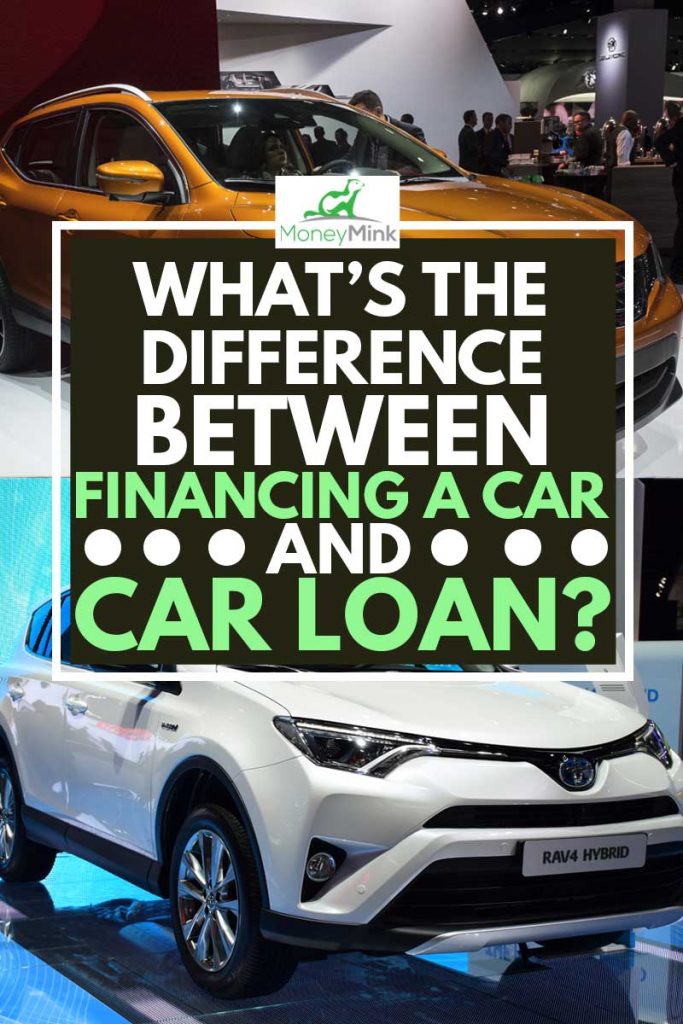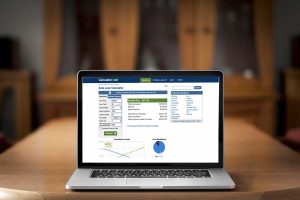Buying a new car without cash in hand is possible and also very common, but it's worth knowing the difference between financing a car and a car loan. We've researched in-depth to find the best information on the subject so that you can make an informed buying decision on your next vehicle.
The difference between financing a car and getting a car loan is that financing packages are varied and available at the dealership or sales lot. Also:
- Car loans are something you must specifically apply for with a bank or credit union.
- You choose the lender for your car loan.
- With financing, options are presented to you at a dealership.
- Dealerships may charge a markup on financing packages so that they earn a commission on the loan.

There's more to learn about financing versus a car loan, including which is the better deal and how your credit might affect the potential to secure either type of funding.
How Can I Choose Financing vs. a Car Loan?
What type of financial deal you get on your new car largely depends on where you're applying for the loan. Whether you are at a dealership or a bank, you are applying for financing. But the difference lies in who is handling the information and offering the loan package.
How Does Financing Work for Cars?
To choose to finance, you only need to walk into a car dealership or sales lot and tell them you want to buy a car.
The salespeople will run your credit application and other information through their system. It's up to them which lenders offer to set you up with a loan because each business can work with multiple lenders or financial institutions.
You will end up with a loan for your vehicle, but it's a toss-up as far as what bank will handle the financing. Plus, the dealer or salesperson might be getting a portion of the interest rate as payment for securing the sale. That can mean higher rates on your end because someone has to pay the difference.
At some dealerships, dealer financing is also available. But financing through the dealer can mean high costs and down payments.
In general, this isn't a good investment and should only be a last resort if you really need a car. Even then, you will want to choose the most affordable vehicle possible to get back on the road without overspending.
How Do Car Loans Work?
In contrast, a car loan is something you apply for separately, before (or after) you go vehicle shopping. You apply for a vehicle loan through your bank or whichever financial institution you choose. For example, you can apply for a loan with the local credit union where you're a member.
If you applied via the car dealership, they might not have a working relationship with the credit union. And in many cases, credit unions offer their members better rates and financial packages than dealers can through their host of lenders.
By the time you finish the application process with the bank, you'll have an idea of how much you can afford to finance with your loan. You can even take a printout of the quote to the car lot with you, which could help you navigate the sales experience.
Such documentation can show the salespeople that you know what you're doing and that you're prepared.
Is a Car Loan Better Than Finance?
Generally, applying for a car loan is better than opting for financing at the sales lot. Some exceptions apply, however.
For example, if you have excellent credit and plenty of disposable income (and can prove it), then your loan terms might be good either way. Being able to compare multiple rates and packages can be helpful if you qualify for more desirable financing options.
But for people with imperfect credit or a lack of credit history, the dealer's financing packages might not be the best choice.
Plus, a bank or credit union that has a history of working with you might be more likely to provide extra incentives or deals for your vehicle loan. They also won't markup the interest rate to make more of a profit on the loan.
Financing at the dealership can be a good choice if you're buying a brand-new car. Many dealers offer promotional pricing on new models and, more commonly, the model years that are about to be replaced. If you have decent credit, you might be able to net a zero percent APR rate on the sale.
What Credit Score is Needed to Buy a Car?
To some extent, the minimum credit score necessary to buy a vehicle is up to the lending institution. After all, some dealerships offer special programs for people with very low credit scores and poor credit histories. But the higher your score, the lower your fees, including the APR. Also, the better your credit, the lower down payment you will likely need.
Many lenders offer more favorable terms to applicants with higher credit scores. In fact, one report showed that 61.7 percent of vehicle loans were awarded to applicants with credit scores above 660. The average score was 717 for people buying new cars and 661 for used cars.
Does a Car Loan Build Credit?
While it's common for any activity on your credit report (from opening a new account to making a payment) to affect your score, a car loan will generally build your credit. However, it can take time, and any missed or late payments can negatively impact your score.
Also, taking out a car loan with high monthly payments can negatively impact your credit.
For example, if your debt to income ratio is already high, adding a high monthly payment on a vehicle note can further skew your score. It can also affect your ability to qualify for other financing such as a mortgage or consolidation loan.
Is a Car Loan Bad Debt?
Though a car loan is a debt, it isn't necessarily "bad" debt. Regardless of the amount of your payment or the length of the loan, making regular car payments will only benefit your credit score. Still, car loans can turn bad in only a month or two. Missed payments are a serious flag on your credit score. As for the question of whether car loans are revolving debt, you can visit our in-depth post on the subject for answers.
Can I Get a Car with No Down Payment?
Most of the time, loan applicants with higher credit scores are more likely to qualify for zero-down offers. It takes a strong credit history and a robust score to qualify, but your monthly payments will also be higher if you skip the down payment.
Plus, financing a used car without a down payment is often more complicated than a brand-new model. Only the applicants with excellent credit tend to qualify to buy a brand-new vehicle at zero down or zero percent APR. In general, it's in your best interest to make a down payment anyway. This way, you're not automatically upside down on your loan, since cars begin losing their value the moment you leave the sales lot.
Your loan will also be longer to achieve a manageable monthly payment if you forgo a down payment. While longer loan terms aren't unheard of, terms of 60 months or more aren't usually a smart financial decision.
Want to learn more about how long your car loan term should be? Check out our related post, "How Long Should My Car Loan Be?" for more information.
What Is An Average Car Payment?
As of the end of 2019, consumers in California paid an average of $358 per month for used car loans. Owners of new vehicles paid an average of $567 per month.
In Texas, the average used car payment was $375, while the average new car payment was $572. In Florida, averages were $530 for new cars and $333 for used vehicles.
Experts recommend keeping your vehicle payment under ten percent of your monthly gross income. Unfortunately, a lower loan payment tends to result in a longer loan term, which isn't desirable either.
Choosing the shortest loan term and making as large a down payment as you can afford will help to keep your vehicle affordable. Ensuring that your credit is good to excellent is also a significant factor in securing the best loan terms whether you use dealer financing or apply for a car loan directly.



